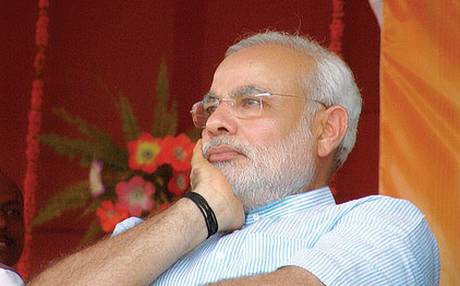
Open letter to Mr Narendra Modi, Chief Minister of Gujarat from Joint Committee of Muslim Organisations for Empowerment, Delhi
The Milli Gazette
Published Online: Nov 23, 2012
16 November, 2012
Mr. Narendra Modi
Chief Minister of Gujarat
Gandhi Nagar,
Gujarat
As the Assembly election approaches, every one has noticed special attention being given by you and your party to the Muslim voters of Gujarat.
The Muslims of Gujarat and outside Gujarat have not yet forgotten the 2002 Massacre. But during the last 10 years, the Muslims of Gujarat have rebuilt their lives with their own hands and limited resources as they have realized that they have nowhere else to go but to live in Gujarat, in the hope that they will receive equitable benefits in development and in public and private employment in Gujarat. Muslim voters see some signs of change in your attitude. However, they may join hands with you in rebuilding Gujarat only if you take the following steps:
1. A public apology by you and expression of sorrow for the Massacre of 2002.
2. Payment of compensation for the lives lost to the next-of-kin on par with the Delhi Riots, 1984.
3. Reimbursement of expenditure incurred by the injured in private hospitals.
4. Rehabilitation of the displaced persons who are still living in make-shift camps and who have not yet been able to return to their villages/homes, in dignity and security and with restoration of their land and shops.
3. Suitable compensation for their houses demolished during the Massacre which have not yet been rebuilt.
4. Offer to rebuild over 300 Masjids and Dargahs and mausoleum which were destroyed/damaged during the atrocities, including boundaries of graveyards.
5. Government guarantee on bank loans to entrepreneurs whose business was affected and whose shops were destroyed or looted.
6. Unconditional release of those who were arrested and are still in prison on unproved allegations.
7. Clear instructions to state lawyers and prosecutors not to side with those who were responsible for atrocities in various localities, so that the victims receive a fair trial.
Instead of repeatedly announcing your faith in Secularism and for making Gujarat a secular state, you should begin by offering at least 20 Assembly tickets to Muslims acceptable by the community in various constituencies where they constitute more than 20% of the electorate. This would give them representation according to the population in the state (10%). Token nomination of one or two Muslims, personally known to you, will not do.
Dear Modiji, if the above suggestions are implemented, they will no doubt have an impact on the Muslims of Gujarat if coupled with a promise to give them equitable share in the benefits of development at all levels, particularly in education and employment.
Alternatively the Muslim leadership will advise Muslims not to divide their votes & vote massively and unitedly for one candidate, irrespective of party or religion who is likely to defeat the BJP in their constituency, with the objective to make it difficult for you to form a government on your own.
Syed Shahabuddin
Convener (JCMOE)
JOINT COMMITTEE OF MUSLIM ORGANISATIONS FOR EMPOWERMENT
D-250, Abul Fazal Enclave, Jamia Nagar
New Delhi-110025 India Tel.: 011-26946780 Fax: 011-26947346
Email: [email protected]





Comments
Add new comment